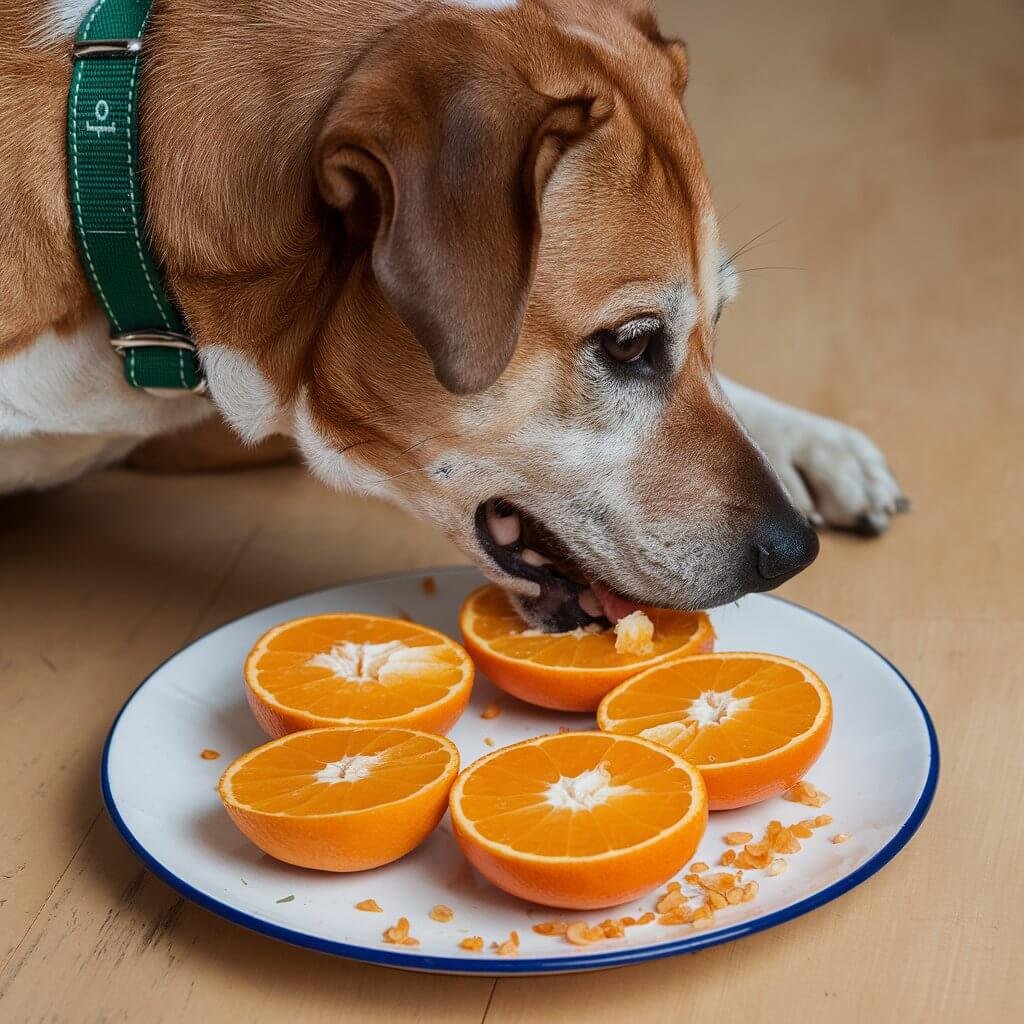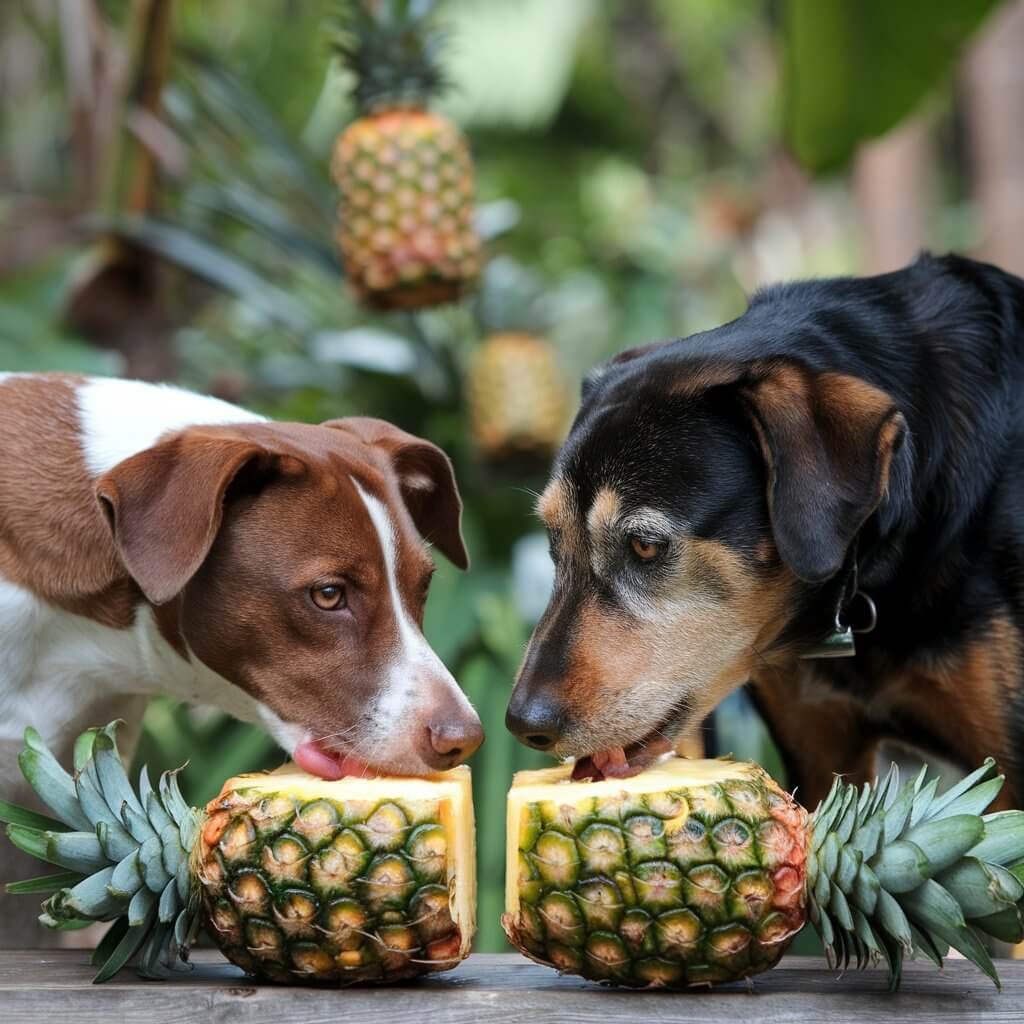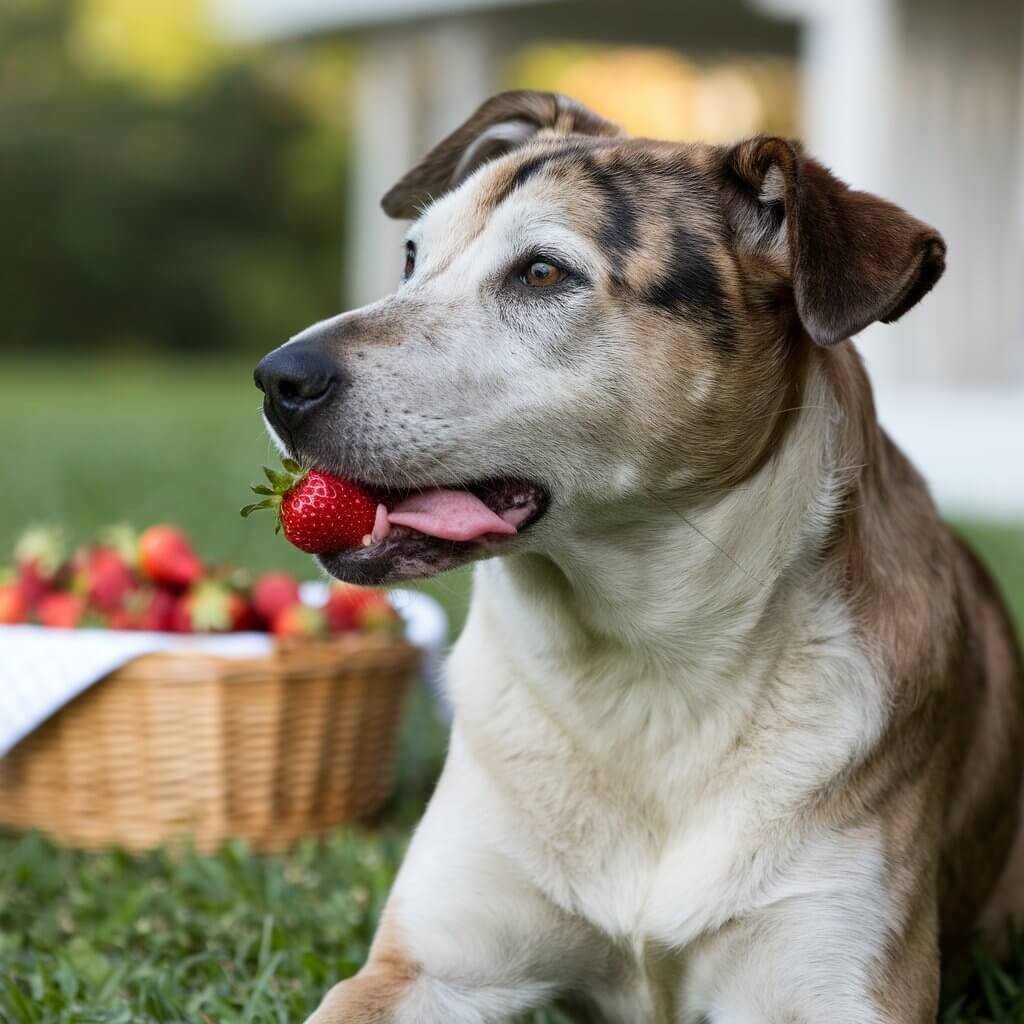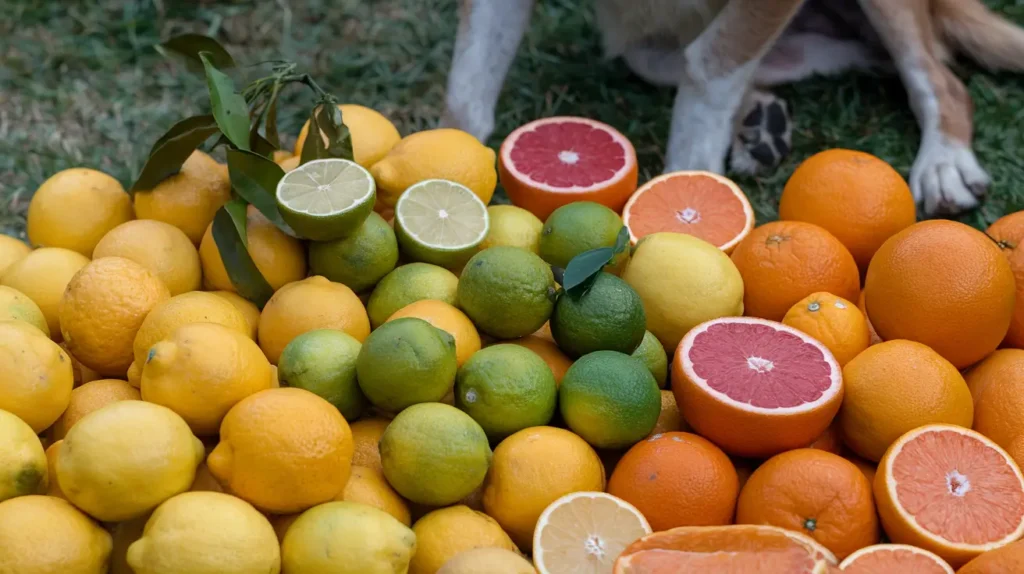Can Dogs Eat Raspberries?
As pet owners, we often want to share our favorite snacks with our furry companions. However, not all human foods are safe for dogs. One commonly asked question is: Can dogs eat raspberries? The answer is yes, but with some precautions. Let’s dive deep into the benefits, risks, and serving guidelines for feeding raspberries to your canine friend.
Table of Contents
Are Raspberries Safe for Dogs?
Raspberries are generally safe for dogs to eat in moderation. These sweet and tart berries are low in calories and packed with vitamins and antioxidants. However, their natural composition includes small amounts of xylitol, a sugar alcohol that can be toxic to dogs if consumed in large quantities. Therefore, portion control is critical.

Are Raspberries Good For Dogs
Yes, raspberries are generally safe and beneficial for dogs when served in moderation. They are packed with essential nutrients, including vitamins, antioxidants, and dietary fiber, which can support your dog's overall health. However, as with any treat, raspberries should be given responsibly to avoid potential risks.
Health Benefits of Raspberries for Dogs
Raspberries offer several nutritional benefits that can support your dog’s overall health:
Risks of Feeding Raspberries to Dogs
While raspberries are healthy, there are potential risks associated with overfeeding:
How to Safely Serve Raspberries to Dogs?
To ensure raspberries are a safe and enjoyable treat for your dog, follow these guidelines:
1. Wash Thoroughly
Rinse raspberries under running water to remove dirt, pesticides, or harmful chemicals that may linger on the fruit.
2. Serve Fresh or Frozen
Both fresh and frozen raspberries are suitable for dogs. Frozen raspberries can make an excellent refreshing treat, especially during the summer months.
3. Introduce Gradually
When introducing raspberries for the first time, offer a small amount and observe your dog’s reaction. Look out for any signs of allergies or digestive upset.
4. Avoid Additives
Do not serve raspberries with sugar, chocolate, or other toppings. Stick to plain raspberries to keep the treat healthy and safe.

Creative Ways to Serve Raspberries to Dogs
If you want to make raspberries a fun and engaging treat, consider these ideas:
1. Homemade Raspberry Dog Treats
Blend raspberries with plain, unsweetened yogurt and freeze the mixture in silicone molds or an ice cube tray. These make perfect cooling snacks for hot days.
2. Mix with Regular Meals
Chop raspberries into small pieces and sprinkle them over your dog’s kibble for a burst of flavor and added nutrition.
3. Create a Fruit Salad
Combine dog-safe fruits like blueberries, apples (seedless), and watermelon with raspberries to make a colorful and healthy fruit salad for your pet. Always serve in moderation.
4. Raspberry Puree
Mash or blend raspberries into a puree and drizzle it over your dog’s food. This is an excellent option for dogs who might not enjoy whole fruits.
When to Avoid Feeding Raspberries?
Avoid giving raspberries to your dog if they exhibit any of the following conditions:
- Known Allergies: Some dogs may be allergic to certain fruits.
- Diabetes: The natural sugar content in raspberries may not be suitable for diabetic dogs.
- Sensitive Stomach: Dogs with a history of digestive issues may not tolerate raspberries well.
Signs Your Dog May Be Reacting to Raspberries
While raspberries are generally safe, it’s essential to monitor your dog after introducing this new food. Below are some signs that may indicate your dog is not tolerating raspberries well:
- Allergic Reactions: Symptoms like itching, swelling, hives, or sneezing may signal an allergy.
- Digestive Issues: Diarrhea, vomiting, or excessive gas could indicate that raspberries are upsetting your dog’s stomach.
- Behavioral Changes: Lethargy, agitation, or unusual behavior might occur if your dog consumes too much xylitol or is otherwise unwell.
If any of these symptoms occur, stop feeding raspberries and consult your veterinarian immediately.
How Many Raspberries Can Dogs Eat?
When feeding raspberries to dogs, it's important to adjust the amount based on their size:
- Small Dogs: Limit to 1-2 berries to avoid any risk of overconsumption.
- Medium Dogs: Can enjoy 3-4 berries as an occasional treat.
- Large Dogs: Safely consume 4-5 berries, ensuring it's part of their treat allowance.
Treats, including raspberries, should make up no more than 10% of your dog’s daily caloric intake to maintain a balanced diet. Always monitor for any allergic or digestive reactions when introducing new foods.
How to Incorporate Raspberries into Your Dog’s Training Routine
Raspberries can be an excellent motivational treat during training sessions. Here’s how to use them effectively:
Fun Raspberry Recipes for Dogs
Here are four more simple and healthy raspberry recipes to treat your furry friend:

1. Raspberry Banana Smoothie
Ingredients: Fresh raspberries, ripe banana, plain unsweetened yogurt, and a splash of water.
Instructions: Blend raspberries, banana, yogurt, and water until smooth. Serve in small portions as a special snack or freeze into cubes for a cool treat.

2. Raspberry Frozen Treat Bites
Ingredients: Fresh raspberries, coconut oil, and a sprinkle of shredded unsweetened coconut.
Instructions: Place a raspberry in each section of an ice cube tray, drizzle with melted coconut oil, and sprinkle a pinch of shredded coconut. Freeze until solid and serve.

3. Raspberry Sweet Potato Mash
Ingredients: Cooked sweet potato, fresh raspberries, and a spoonful of plain unsweetened yogurt.
Instructions: Mash the cooked sweet potato and mix with mashed raspberries and yogurt. Serve as a tasty side dish to your dog’s meal or as a standalone snack.

4. Raspberry Chicken Jerky Rolls
Ingredients: Fresh raspberries and chicken breast strips.
Instructions: Place a raspberry at one end of a thin chicken strip and roll it up. Secure with a toothpick (remove before serving). Bake at 200°F (95°C) for 2-3 hours until fully dried. Let cool before serving.
The Big Picture: A Holistic Approach to Dog Nutrition
Nutrition is a cornerstone of your dog’s health, but it’s not the only factor. Pairing a balanced diet with regular exercise, mental stimulation, and routine vet visits creates a comprehensive care plan for your pet.
Exercise: Ensure your dog gets plenty of physical activity to maintain a healthy weight and reduce stress.
Mental Enrichment: Interactive toys, training sessions, and games keep your dog mentally sharp.
Health Checkups: Schedule routine visits to the vet for vaccinations, dental care, and health screenings.
By taking a holistic approach, you’ll not only keep your dog physically fit but also foster a deeper bond with your furry companion.
Incorporating Seasonal Treats Alongside Raspberries
Raspberries can be combined with other dog-friendly seasonal fruits to create variety in your dog’s diet. Here are some ideas:

Spring Treats
- Strawberries: Rich in vitamin C and safe for dogs in moderation.
- Carrots: Great for chewing and high in beta-carotene for eye health.

Summer Treats
- Watermelon: Hydrating and refreshing; ensure seeds and rind are removed.
- Cucumbers: Low in calories and excellent for hydration.

Autumn Treats
- Pumpkin: A fantastic source of fiber that supports digestive health.
- Pears: Offer in small, seedless pieces as a sweet treat.

Winter Treats
- Sweet Potatoes: Rich in nutrients and easy to prepare as baked slices.
- Bananas: Provide a quick energy boost with potassium benefits.
What Makes Raspberries Stand Out as a Treat?
Compared to other fruits, raspberries are unique due to their high antioxidant content combined with low natural sugar levels. This makes them an ideal treat for:
- Older Dogs: Antioxidants support joint health and combat inflammation.
- Weight-Conscious Pets: Low calories and minimal sugar help prevent weight gain.
- Dogs with Sensitive Stomachs: The fiber in raspberries aids digestion when introduced gradually.
Raspberries provide a balance of sweetness and nutrition that many other fruits lack, making them a preferred choice for pet owners.
Tips for Storing Raspberries Safely for Your Dog
Proper storage of raspberries ensures they remain fresh and safe for your dog to eat. Here are some quick tips:
- Refrigeration: Keep raspberries in the fridge to preserve their nutrients and freshness. Store them in a breathable container lined with paper towels to absorb excess moisture.
- Freezing for Longevity: If you have an excess of fresh raspberries, freeze them for later use. Frozen raspberries can also double as a refreshing snack for your dog.
- Avoid Overripe Berries: Discard any raspberries that show signs of mold, excessive softness, or discoloration. These can upset your dog’s stomach or cause illness.
The Importance of Moderation with All Treats
Overindulgence, even with healthy treats like raspberries, can lead to unintended health issues. Here's why moderation is key:
- Prevents Nutritional Imbalance: Overloading on fruits may reduce your dog’s interest in their complete dog food, leading to deficiencies.
- Reduces Risk of Toxicity: While raspberries contain minimal xylitol, excess amounts can be dangerous.
- Maintains Digestive Health: Smaller quantities prevent bloating, diarrhea, or other digestive discomforts.
Always consider raspberries as an enhancement to your dog’s diet, not a replacement for their main meals.

How to Spot High-Quality Raspberries
When selecting raspberries for your dog, look for these characteristics:
Signs of a Happy and Healthy Dog After Eating Raspberries
If your dog enjoys raspberries without any adverse reactions, you’ll notice positive signs such as:
Educating Fellow Dog Owners Dog Owners
As responsible pet parents, sharing knowledge about safe treats like raspberries can help others care for their furry friends. Encourage your network of friends, family, and fellow dog lovers to:
- Research Foods: Not all human foods are dog-friendly.
- Consult Veterinarians: Regular vet checkups and diet consultations are essential.
- Promote Moderation: Even safe foods can cause problems if overfed.
By spreading awareness, you can help other dog owners make informed choices, keeping their pets happy and healthy.
What American Medical Universities and Pets experts say about it!
According to veterinary experts and research from reputable institutions, raspberries are generally safe for dogs in small amounts and can provide certain health benefits. They are low in calories, high in fiber, and packed with antioxidants that support immune health, reduce inflammation, and promote healthy aging. However, they naturally contain xylitol, a compound toxic to dogs in large quantities, though the levels in raspberries are minimal and unlikely to pose a serious risk when fed in moderation.
Recommendations from Veterinary Experts About Eating Raspberries
Alternatives to Raspberries for Dogs
If raspberries aren’t available or suitable for your dog, consider these other dog-safe fruits:
Can Dogs Eat Raspberries?
Other Foods to Avoid When Feeding Raspberries
If you’re mixing raspberries with other foods for your dog, ensure you steer clear of the following toxic items:




Where to Get Fresh Raspberries for Your Dog
- Local Farmers’ Markets: Farmers’ markets often sell freshly picked, organic raspberries, which are free from pesticides and chemicals, making them a healthier choice for your pet.
- Grocery Stores: Many supermarkets carry fresh raspberries year-round. Look for raspberries that are firm, bright red, and free of mold or damage. Organic options are preferred if available.
- Pick-Your-Own Farms: During raspberry season, visit a local farm for a fun experience picking fresh raspberries. This is a great way to get the freshest fruit and ensure it is chemical-free.
- Community Supported Agriculture (CSA) Boxes: Subscribing to a local CSA can provide you with fresh, seasonal raspberries and other fruits delivered regularly.
Signs of a Happy and Healthy Dog After Eating Raspberries
If your dog enjoys raspberries without any adverse reactions, you’ll notice positive signs such as:
- Improved Digestion: Thanks to the fiber content, your dog may exhibit regular bowel movements and less bloating.
- Increased Energy: The natural sugars and nutrients in raspberries can give your dog a light energy boost.
- Healthy Coat and Skin: The vitamins and antioxidants can contribute to a shinier, healthier coat over time.
Monitoring your dog’s overall health after introducing new treats is key to ensuring they are well-suited to their diet.
Which Dogs Can't Eat Raspberries
Not all dogs can safely enjoy raspberries. Learn which dogs should avoid this fruit, including those with diabetes, sensitive stomachs, allergies, or a tendency to gain weight.
3. Dogs with Allergies
Dogs prone to food allergies might react to raspberries, showing symptoms like itching, swelling, or stomach discomfort.
Environmental and Seasonal Considerations
When purchasing raspberries for your dog, prioritize organic options to minimize exposure to pesticides. Additionally, keep the following in mind:
Conclusion: Can Dogs Eat Raspberries? A Healthy, Sweet Treat for Dogs
Raspberries are a nutritious and delicious snack that can enhance your dog’s diet when fed responsibly. Their antioxidants, vitamins, and low-calorie content make them a great choice for occasional treats. However, always serve them in moderation, avoid overfeeding, and monitor your dog’s reaction.
The antioxidants, vitamins, and fiber in raspberries contribute to your dog’s overall health, but their natural xylitol content requires careful portion control. By following the serving tips in this guide, you can confidently share this delightful fruit with your canine companion without compromising their well-being.
Remember, your dog’s health is a priority. Monitor their response to raspberries and consult a veterinarian if you have concerns. A balanced and varied diet, supplemented with occasional treats like raspberries, ensures your dog stays happy, healthy, and thriving.
Can Dogs Eat Raspberries FAQs
What are the health benefits of raspberries for dogs?
Can raspberries be harmful to dogs?
How many raspberries can I give my dog?
Are frozen raspberries safe?
Can dogs eat frozen or cooked raspberries?
What should I do if my dog eats too many raspberries?
Can dogs eat raspberries raw?
Can puppies eat raspberries?
Latest Posts
Can Dogs Eat Doritos? 4 Powerful Points That Shows Doritos Are Unsafe for Dogs
As pet owners, we often find ourselves tempted to share our snacks with our furry companions. One common question that arises is, “Can dogs eat Doritos?” No, dogs should not eat Doritos. While a small amount is unlikely to cause immediate harm, the ingredients in Doritos, such as high salt content, artificial flavors, and spices,…
Can Dogs Eat Macadamia Nuts? 7 Solid Symptoms of Macadamia Nut Poisoning in Dogs
When it comes to feeding our dogs, we often look to share some of our favorite snacks with them. However, not everything that is safe for humans is equally harmless to dogs. The common question is that Can Dogs Eat Macadamia Nuts? the short answer is no, dogs should not eat macadamia nuts. These nuts…
Can Dogs Eat Sunflower Seeds? 6 Solid Reasons Dogs Eat Sunflower Kernels
When it comes to our furry companions, it’s natural to question the safety and benefits of the foods they consume. Sunflower seeds are a popular snack among humans, but Can dogs eat Sunflower seeds? Are Sunflower seed safe for dogs? Yes, dogs can eat sunflower seeds and sunflower seeds are safe in moderation, provided certain…
Can Puppies Eat Bread? 3 Surprising Benefits Explained
Can Puppies Eat Bread? This is a question many pet owners ask when considering sharing their food with their furry friends. While bread is a common food in human diets, it’s essential to know whether it’s safe and beneficial for puppies. Understanding the potential risks and benefits will help you make the best decision for…
Can Dogs Eat Bread? 3 Shocking Risks That Show Bread Can Be Bad for Dogs
Can dogs eat bread? Is bread bad for dogs? These are common questions among pet owners. Bread is a staple in many households, and while dogs can eat bread, it should only be given in moderation and under certain conditions. Plain white or whole wheat bread is generally safe for dogs to consume, but it…
What Citrus Is Toxic to Dogs? Top 4 Types That Are Toxic
Dogs are curious creatures, often eager to explore their surroundings, including the food we eat. While many fruits are safe for dogs in moderation, the question arises: What citrus is toxic to dogs? The answer lies in citrus fruits such as lemons, limes, and grapefruits, which contain compounds that can be harmful to your canine…



















